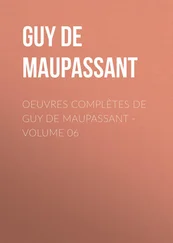Alec hoped that what he said would make the doctor understand. He searched for some change in his manner, for some sign that he was no longer so sure. Monkman knew that otherwise he would have to give way. A simple, uneducated man like him could not, in the end, resist medical arguments, medical authority.
The doctor’s face was implacable.

It was Stutz and Alec who delivered Earl with the necessary papers. A long, exhausting drive with stretches of indescribably bad road. The men commented on the progress of the harvest to distract their minds from what they were doing.
At one point in the trip Alec said to Stutz, “If anybody asks where Earl’s at – he went east to visit his sister and maybe to look for work. When he comes back better, he won’t need this as common knowledge.” Earl’s complete and unbroken silence had already caused his father to fall into the habit of talking about him as if he wasn’t present.
Stutz pursed his lips disapprovingly. “That’s a lie.”
Alec lost his temper, something he seldom did with Stutz. “If you’re too goddamn pure to tell a lie – then refer them to me. I can tell enough lies for the both of us if I need to. Just promise me to keep quiet. Can you do that much?”
Quiet they both kept.

Although Vera had come to a decision, for nearly two weeks she held her cards close to her vest and gave no hint of what she was thinking, even when Stutz went fishing by reminding her that his offer still stood. She was behaving exactly as she had done years before when she joined the Army without taking anyone into her confidence. There’s many a slip betwixt cup and lip, Vera was fond of telling herself.
That was part of it, but not all. She didn’t want to leave the impression of being desperate by grabbing at the money too quickly. It was undignified. A respectable delay between offer and cautious acceptance gave the whole transaction more of a business-like air and made it feel less like charity. There were reasons of pleasure, too. Vera liked the tease of anticipation, the slow boil of excitement that came with knowing she was going to shake and throw the dice. Last of all, she was not inclined to rush headlong into this because she half-expected to one day soon find her father on her doorstep, prepared to apologize. The great man himself, not Stutz.
Sitting in the bare, rented shack without so much as a radio to distract her, pictures would form in her mind. There she stood with her father having a real conversation, all the pieces of the puzzle that was their lives falling into place and locking solid in exactly the way they never had before.
And then suddenly she would be furious with herself for making the same stupid mistake she had been making since the first day she had set foot back in Connaught. Hoping for the miracle to occur, hoping that honesty, if nothing else, would force him to settle the score. How many times was she going to imagine him humbly saying it? “I was wrong to take you out of school, Vera. It was just that I couldn’t see what you had it in you to become.” Her saner self knew that hell would freeze over before she heard that. Twelve days passed, her moods swinging like the bob of a pendulum, and then her instincts directed her to put an end to it. There came a time even a man like Stutz lost patience. Besides, the edge was coming off the anticipation, the doubts multiplying and whispering too loudly.
It was flattering to see how grateful Stutz was to her for taking his money. Once she had it safely transferred to her account Vera moved to make up for any time she had lost. Within two days of the transfer she had, with Stutz’s assistance, negotiated and signed a lease for The Bluebird Cafe, scratching her signature in a headlong scrawl that was the only sign she gave of how wild and impetuous she felt at that moment. There had been nothing like it since the Army.
Having allowed herself that one self-dramatizing flourish, henceforth Vera went doggedly forward. Almost immediately she felt her spirits dip, felt worry and fear crowd round her shoulders. Over and over she had to remind herself that if success depended on hard work then she would triumph. Yet just in case she didn’t, she wished all this was happening someplace else, someplace her father wasn’t present, scrutinizing her every move, ready to pounce on every miscalculation and foolishness.
The only effective antidote to the poison of such thoughts was to fling herself into work and, if nothing else, The Bluebird provided an unlimited supply of that. Vera asked herself whether the cafe had ever had a thorough cleaning since the days she had sat in its booths, drinking Coke and gossiping with her old chums Mabel Tierney and Phyllis Knouch. Now these girls she had believed she had left trapped in Connaught were long departed, married to men in the city who had freed them from a short servitude as secretaries, while she, adventurous Vera, was back home standing in the midst of the mouse dirt and cobwebs of the past.
But cobwebs could be brushed away. For a week, commencing a little after seven each morning and continuing until midnight, Vera scrubbed away years of neglect. Layer after layer of wax rolled up under the blade of her putty knife, saharas of dust and the haphazard sprinklings of mouse and rat shit scattered before her diligent broom, twenty years of smoke and grease caking the walls dissolved in pail upon pail of hot water, turning it the colour of strong tea. An entire afternoon was spent attacking the old yellow pee tracks in the toilet bowl in the men’s washroom, bleaching and brushing, brushing and bleaching, until the stains had subsided into acceptable pale ivory water marks. Vera had not slaved like this in years. It was for her, for Daniel. Her arms and shoulders ached and trembled, her eyes smarted and her nose ran in the fumes of powerful disinfectant as she winced, lowering knuckles (that had been scraped scouring corner grime) into a bucket of Lysol and scalding water. Muscle spasms in her lower back caused her to limp and list but not to cease her war on filth. She ate standing because she had difficulty raising herself from a chair if she sat for any length of time.
Daniel helped after school. He polished windows with newspaper, buffed the paste wax his mother laid down on the floors, mended tears in the upholstery of the counter stools with electrician’s tape, removed rodents from traps and disposed of the bodies.
When Vera collapsed on her bed some time after one o’clock in the morning, after she had thrown together Daniel’s school lunch for the next day, she seldom slept more than an hour or two before snapping awake. Did she lock the front door of the cafe? Did she turn the grill off after frying up supper for herself and Daniel? On a number of occasions she went so far as to steal out of the house and hurry across town in the cold and dark to lay her palm on the top of the grill and rattle the lock on the front door one last time.
She left it to Mr. Stutz to order whatever she would need from a restaurant supplier in Regina. He knew what was necessary because for years he had performed that service for her father’s restaurant in the hotel. Still, Mr. Stutz did not really presume. He made a list and went over it with her, item by item, explaining. The shipments soon began to arrive. Vera unpacked plates and cups, gigantic roasting pans and pots, cutlery. It was all vaguely familiar from the Army kitchens she had known. There were serviette dispensers, a coffee-maker, a milkshake mixer, banana-split boats, and sundae dishes that resembled vases. One day she became the owner of an ice cream freezer and an electric cash register.
Читать дальше














